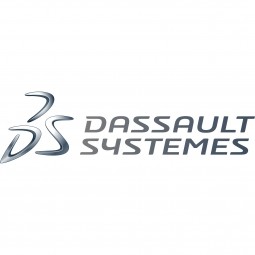Download PDF
Consumer Goods & Retail Case Study - Mammut Sports Group
Technology Category
- Functional Applications - Product Lifecycle Management Systems (PLM)
- Platform as a Service (PaaS) - Data Management Platforms
Applicable Industries
- Consumer Goods
- Retail
Applicable Functions
- Product Research & Development
- Quality Assurance
Use Cases
- Inventory Management
Services
- Software Design & Engineering Services
- System Integration
The Challenge
Mammut Sports Group, a Swiss mountain sports specialist and producer of alpine equipment and apparel, was facing challenges in accelerating their product innovation and managing their product information in compliance with norms and environmental regulations. The company was managing a highly diverse product portfolio and was using numerous Excel files to manage all their stock keeping units (SKU), which was time consuming and error-prone. The process of juggling between so many files eventually became complicated and information was hard to find. The company decided to consolidate all their product information in one unique system to improve coordination and to have better visibility within their product catalogue.
About The Customer
Mammut Sports Group is a Swiss mountain sports specialist and producer of alpine equipment and apparel. The company has been focusing on the well-being and safety of nature lovers for over 150 years. Their apparel, footwear, climbing, safety and sleeping equipment have accompanied the most daring exploits of some of the world’s top athletes. The company manages a highly diverse product portfolio and is known for its innovative and functional products. The company is also a member of two sustainability-oriented organizations: the Fair Wear Foundation, which audits and controls working conditions at its suppliers in Asia and Europe and Bluesign Technologies, which controls the chemicals and dyeing processes of their plants to ensure they are pollution-free.
The Solution
Mammut Sports Group chose Dassault Systèmes’ 3DEXPERIENCE platform and the My Collection industry solution experience to manage all of its product data. The platform was chosen because it respects their business processes and is robust enough to manage multiple categories of products. Every employee now enjoys easy and secure access to all their libraries, as well as purchasing, development and production data thanks to this industry solution experience. The company's quality control office in Asia can also access the system to download the latest version of a product’s specification package to perform on-site factory inspections. The platform contains all the necessary information required to create a spec-pack that they send to their suppliers and which contains all their products’ specifications.
Operational Impact
Related Case Studies.
.png)
Case Study
Improving Vending Machine Profitability with the Internet of Things (IoT)
The vending industry is undergoing a sea change, taking advantage of new technologies to go beyond just delivering snacks to creating a new retail location. Intelligent vending machines can be found in many public locations as well as company facilities, selling different types of goods and services, including even computer accessories, gold bars, tickets, and office supplies. With increasing sophistication, they may also provide time- and location-based data pertaining to sales, inventory, and customer preferences. But at the end of the day, vending machine operators know greater profitability is driven by higher sales and lower operating costs.

Case Study
Improving Production Line Efficiency with Ethernet Micro RTU Controller
Moxa was asked to provide a connectivity solution for one of the world's leading cosmetics companies. This multinational corporation, with retail presence in 130 countries, 23 global braches, and over 66,000 employees, sought to improve the efficiency of their production process by migrating from manual monitoring to an automatic productivity monitoring system. The production line was being monitored by ABB Real-TPI, a factory information system that offers data collection and analysis to improve plant efficiency. Due to software limitations, the customer needed an OPC server and a corresponding I/O solution to collect data from additional sensor devices for the Real-TPI system. The goal is to enable the factory information system to more thoroughly collect data from every corner of the production line. This will improve its ability to measure Overall Equipment Effectiveness (OEE) and translate into increased production efficiencies. System Requirements • Instant status updates while still consuming minimal bandwidth to relieve strain on limited factory networks • Interoperable with ABB Real-TPI • Small form factor appropriate for deployment where space is scarce • Remote software management and configuration to simplify operations

Case Study
How Sirqul’s IoT Platform is Crafting Carrefour’s New In-Store Experiences
Carrefour Taiwan’s goal is to be completely digital by end of 2018. Out-dated manual methods for analysis and assumptions limited Carrefour’s ability to change the customer experience and were void of real-time decision-making capabilities. Rather than relying solely on sales data, assumptions, and disparate systems, Carrefour Taiwan’s CEO led an initiative to find a connected IoT solution that could give the team the ability to make real-time changes and more informed decisions. Prior to implementing, Carrefour struggled to address their conversion rates and did not have the proper insights into the customer decision-making process nor how to make an immediate impact without losing customer confidence.

Case Study
Digital Retail Security Solutions
Sennco wanted to help its retail customers increase sales and profits by developing an innovative alarm system as opposed to conventional connected alarms that are permanently tethered to display products. These traditional security systems were cumbersome and intrusive to the customer shopping experience. Additionally, they provided no useful data or analytics.







